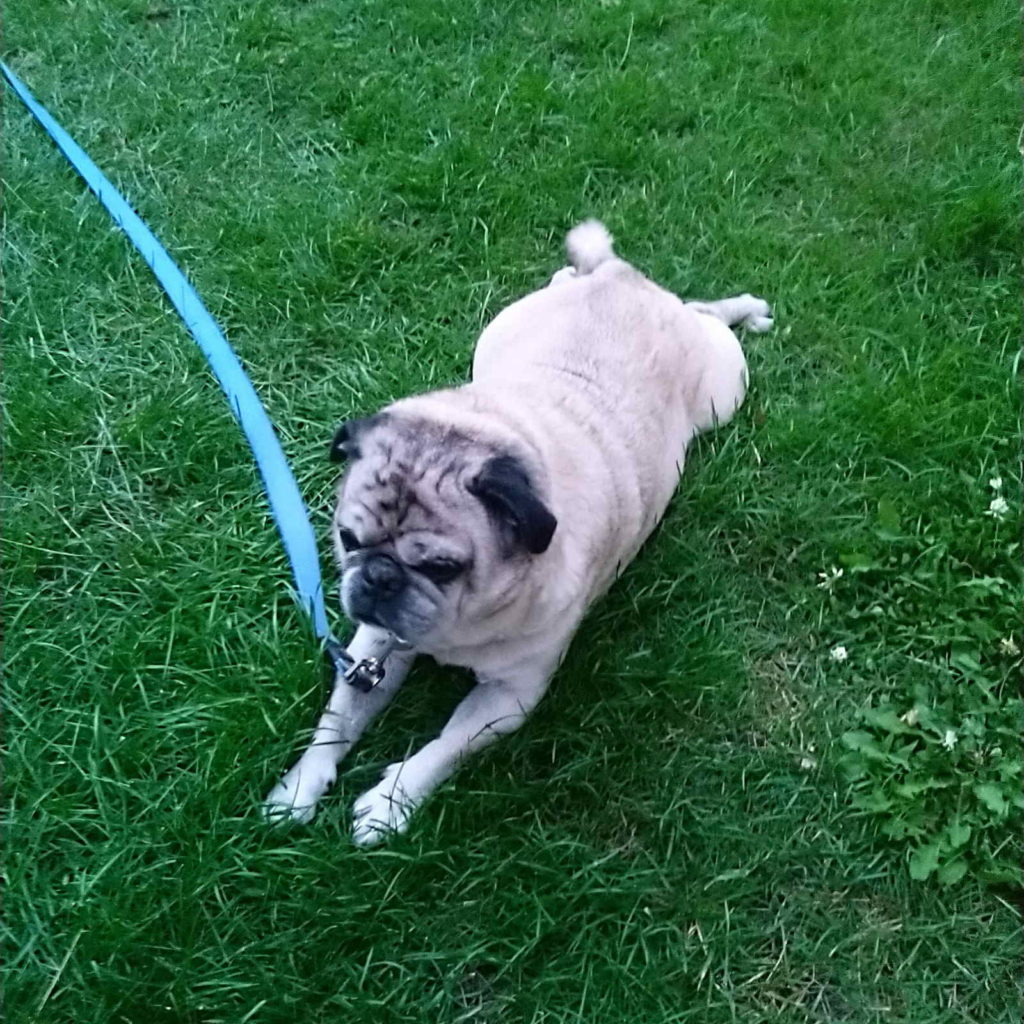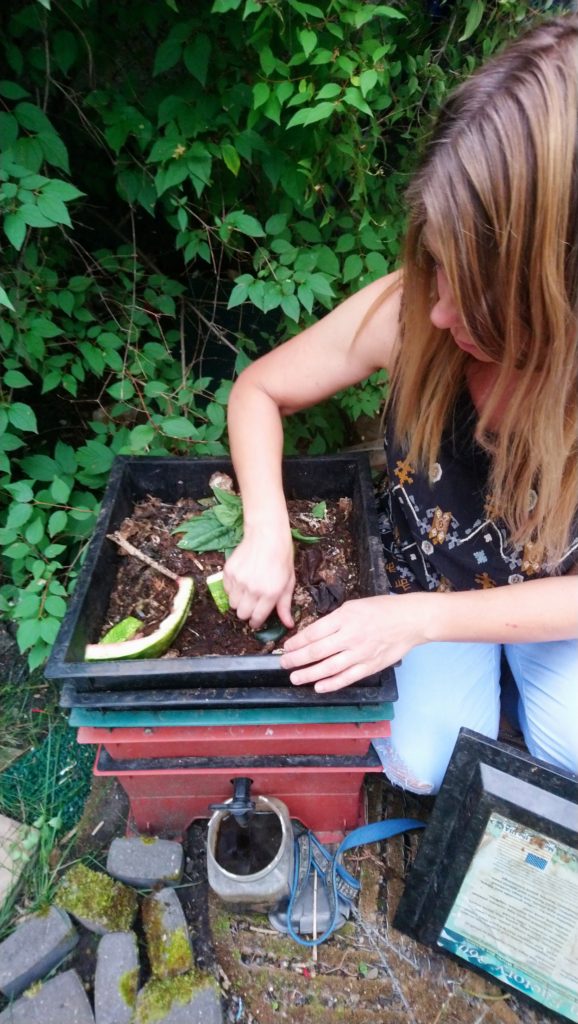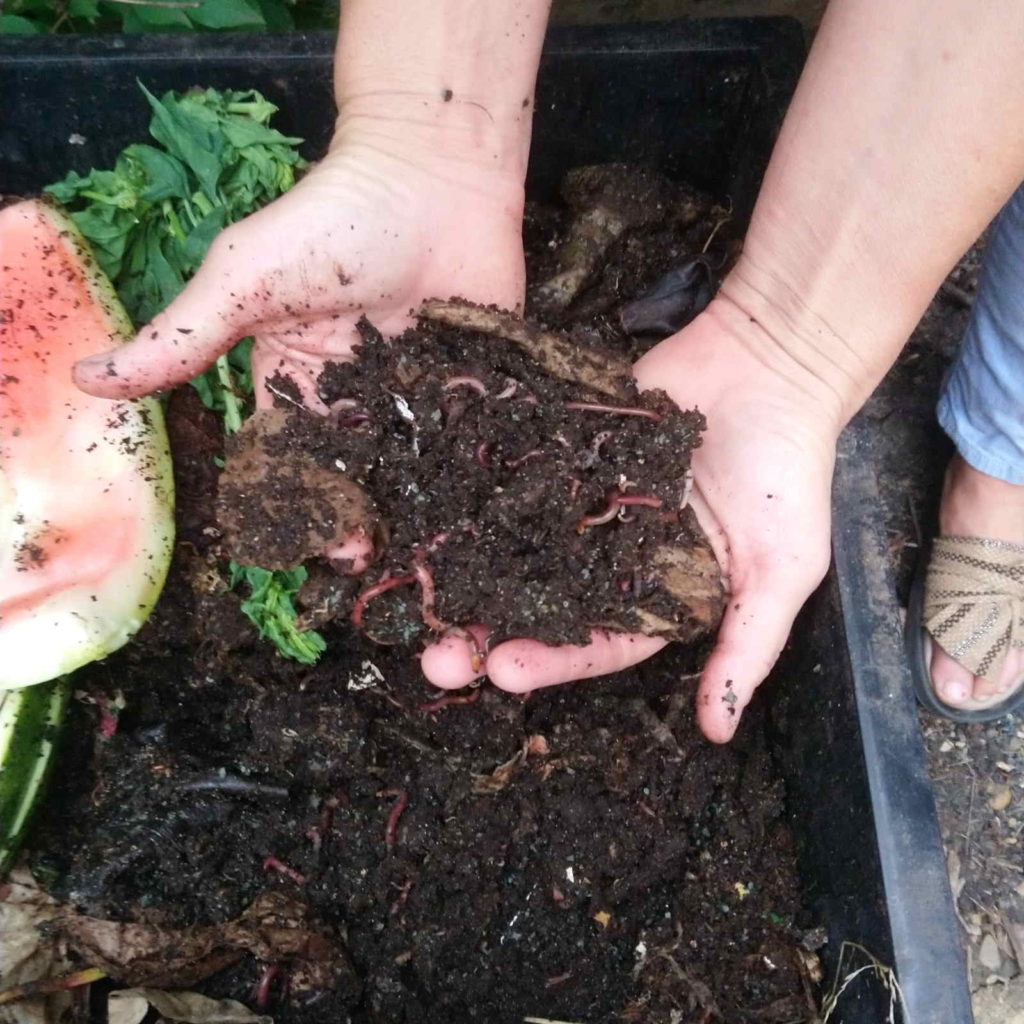
Adrienne is the entrepreneur behind The Avant Gardener, one of Edmonton’s few sellers of red wigglers. Vermicomposting is the science of using worms to break down organic matter and is a quick way to reduce food waste while generating fantastic compost for your garden. I visited Adrienne to hear about her vermicomposting business and how she reduces waste.
Pulling up to her property, I marked its owner as having a green thumb immediately. Her house is ribboned with plants and greenery, vegetables and herbs planted wherever there’s room for a pot. Her backyard is also her headquarters for the Avant Gardener, with worm factories dotted throughout. We crack open a bottle of homemade rhubarb wine and start our chat.
“I worked in community gardens for a few years and was constantly running out of good soil for my plants,” she says. “Learning about vermicomposting was amazing. It solved my need for healthy soil and improved my plants at the same time.”
Composting is a simple, natural science that has existed for millions of years. The right proportion of greens (wet, nitrogen-rich materials) and browns (dry, carbon-rich materials) exposed to air and water will break down organic matter. Adding red wigglers — a specific kind of worm, not every earthworm has this ability — into this mix speeds up the process considerably. When Adrienne heard how quickly the addition of worms helps break down organic matter, she dove into vermicomposting wholeheartedly.
“I started home vermicomposting in 2015, started selling excess worms in 2016, and joined the Master Composter Recycler program in 2018. It’s been a lot of fun going out and talking to people about worms and waste.”
Snoots the pug is at my feet, receiving skritches and splooting in the grass during a hot summer night. Adrienne laughs. “He’s a great help.”

We’ve only talked about the positives to vermicomposting — I ask her what issues she’s had, if any, with worms?
“I was worried about my worm bin at the start. Is it too big, too small, are there enough holes, things like that. I kept searching for answers on the internet, which left me more confused. But my compost mentor told me a valuable quote:
“If you’ve seen one worm bin, you’ve seen one worm bin.”
“It reminded me that worm composting is supposed to be less fuss and more fun. Soil ecology is a complex and fascinating science, it’s easier to observe and relate with the simple hands-on approach. Your bin has to work for you.”
She walks me through her backyard, pointing out her worm factories nestled between, underneath, and around blooming flowers and rapidly-growing vegetables. She points out kale, potatoes, chard, tomatoes, cucumbers — too many to mention. “All my plants are fed with worm castings. Just throw a handful into your garden!” She opens up a nearby factory, skims some castings off the top, and lobs them into a pot of peppers.

“It’s no longer unusual to hear someone say they have a box of worms helping break down their food scraps. It’s an inexpensive project, and you might already have everything you need except the worms.”

Adrienne’s hands are dusted with dirt and castings, but this is Adrienne at her most comfortable. Her story is one that stands out for how ordinary it is; we all have desires to reduce our carbon footprint or address the environmental problems in our day-to-day lives. Hers were solved using vermicomposting, and with a little research, yours can too.
Adrienne’s worms, worm tea, and worm castings are available to purchase today! Her contact information is below.
The Avant Gardener
P: 780-238-1237

